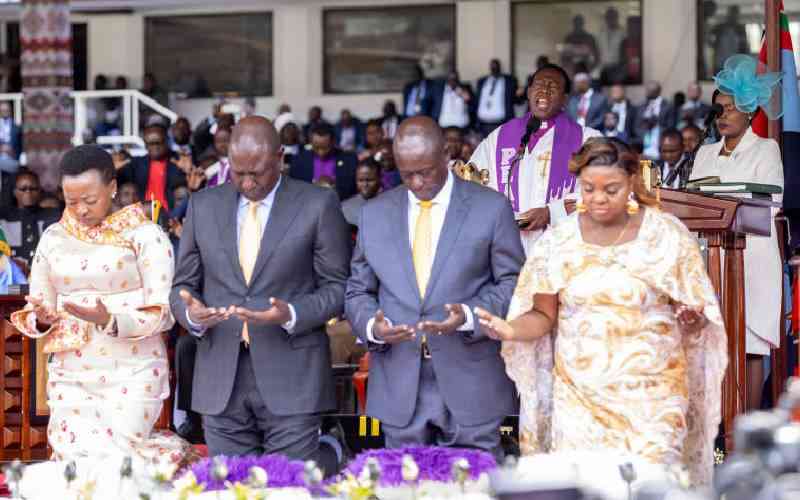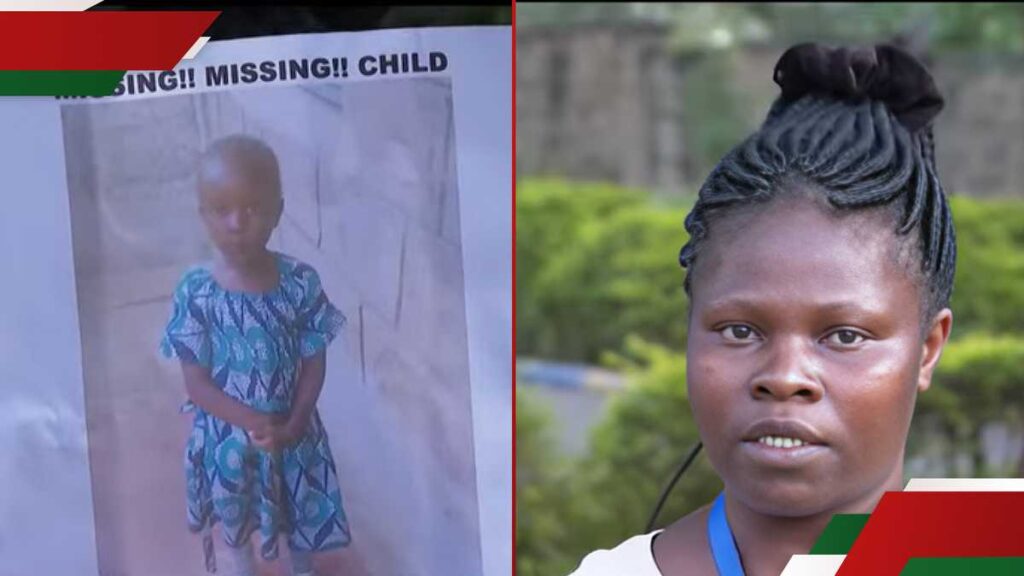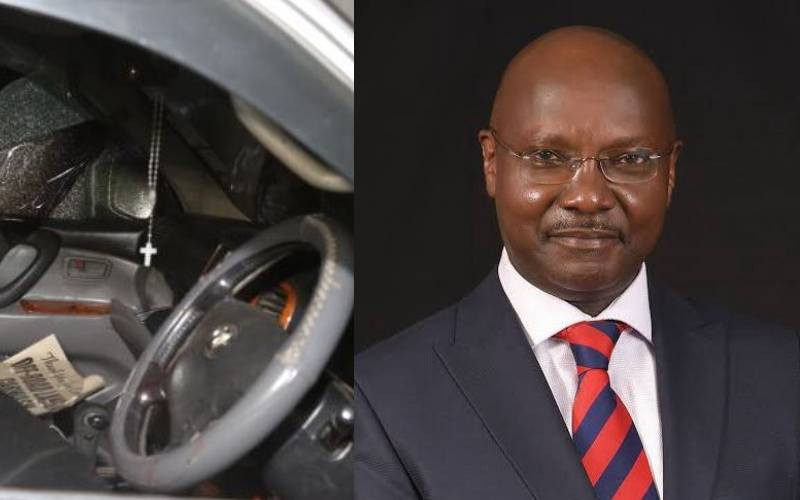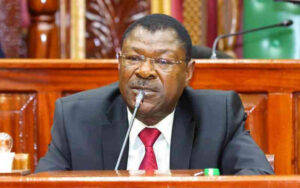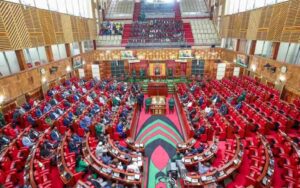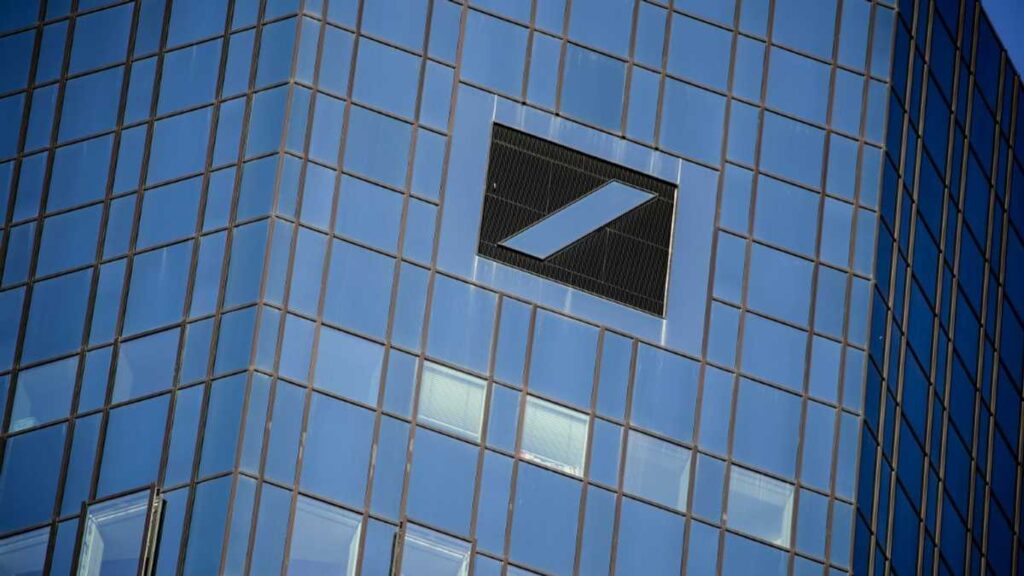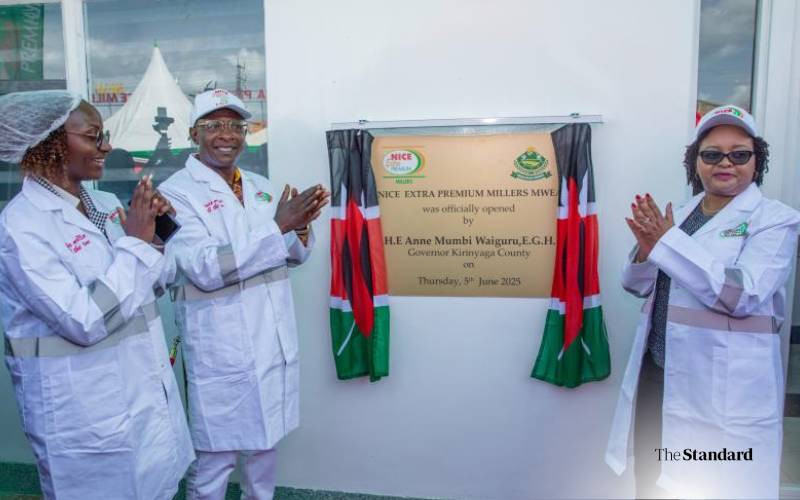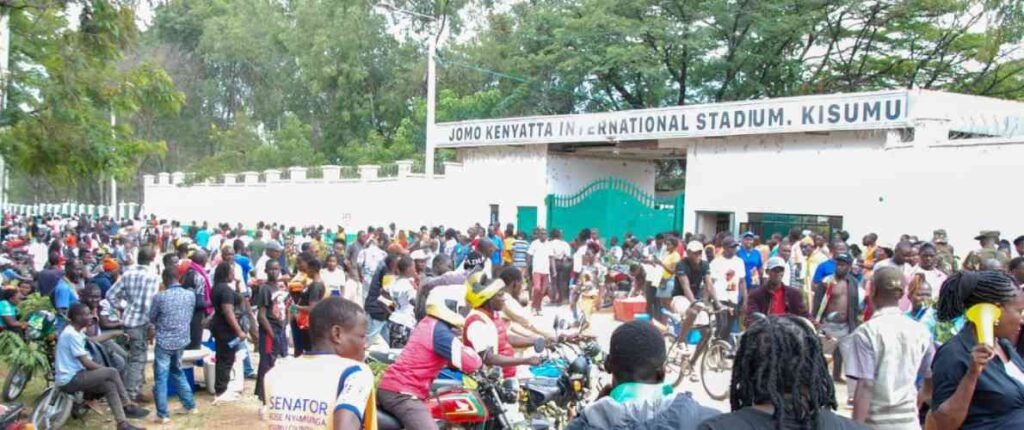President William Ruto’s sensational claim that former Deputy President Rigathi Gachagua demanded Sh10 billion to champion his cause in the Mount Kenya region has once again exposed the transactional nature of Kenyan politics.
In an interview with vernacular stations from the region Monday, Dr Ruto said that Gachagua had tried to blackmail him to drop plans to hinder Ruto’s reelection bid, accusing the former DP of picking constant fights with State functionaries.
“You know I can make you a one-term President if you do not do this and that. I need Sh10 billion… to mobilise for you in Mt Kenya,” the Head of State quoted Gachagua as saying, arguably implying that the former DP had intended to frustrate Ruto in Mt Kenya.
“I told him I will not do it. I told him this (the alleged Sh10 billion demand) was not possible. I am okay with serving one term. There is no problem. If you determine how many terms one serves – I thought it was the people and God – then decide as you please,” Ruto added.
His remarks follow similar ones by Gachagua, who sensationally claimed in February that Ruto had offered him Sh2 billion to resign ahead of the former’s impeachment last October.
“He told me, ‘Resign, and I will give you Sh2 billion. Go home and rest and do your stuff. You will have access to security and a salary, and you could still contest elective office in future.’ I asked myself whether the person planning evil against me could offer me solutions,” Gachagua said in an interview with vernacular radio stations from the former Western Province.
Speaking on Citizen TV morning show, Belgut Member of Parliament Nelson Koech said Gachagua might have asked for the finances.
“I will not put it past the former deputy president to have demanded Sh10 billion. His appetite for money is huge… He had corruption cases before,” said Koech.
Doubtless, Ruto and Gachagua, as well as Koech, expose Kenya’s politics as significantly organised around money. Several politicians have been captured on camera dishing handouts to citizens, aimed as mobilisation fees for the attendance of political rallies or to vote a particular way.
“The remarks (Ruto’s and Gachagua’s) show that Kenya’s politics is all about bribery. People bribe their way to leadership, and once there, they steal. That is why they hardly do any development,” said Bernard Muchere, a certified fraud examiner who worked at the National Treasury as an internal auditor, uncovering corruption scandals.
Politicians find ‘mobilisation’ funds irresistible. Reports of lawmakers being bribed to vote a particular way. In 2021, the BBC quoted Moses Kuria, Ruto’s economic adviser, as claiming to have taken a $1000 bribe (Sh129,000 by current exchange rates) to back the appointment of former Kipipiri MP Amos Kimunya as the National Assembly’s majority leader.
Governance consultant Tom Mboya, who in 2021 co-wrote a study about the cost of Kenya’s politics with political scientist Karuti Kanyinga, exposing the corruption involved in mobilization, dismissed the claims by both politicians.
“Neither one is known particularly for their truthfulness! So, such statements are only likely to excite their most ardent supporters. Wild, unsubstantiated claims have become commonplace in politics: a tactic used by politicians more interested in gamesmanship than meaningful political discourse,” said Mboya.
Political risk analyst Dismas Mokua concurred, saying, “It is practically impossible to verify statements made by these politicians.”
Stay informed. Subscribe to our newsletter
Muchere, who said the President “cannot come from nowhere” in regard to Ruto’s claims, stated that he did not buy the Head of State’s claims.
“One year after he took power, Ruto had not lost his popularity. What mobilization was Gachagua going to do? I don’t buy the narrative – unless the Sh10 billion demand was aimed at refunding what the former deputy president had spent in the campaigns.
Machakos Deputy Governor Francis Mwangangi said Ruto and Gachagua were just “playing politics.”
“To me, the Sh10 billion or the Sh2 billion is neither here nor there. None of them has reported the matters to the investigative agencies. None has said how it happened or talked about it sooner. The President is just feeling the pinch of facing Mt Kenya now that he impeached Gachagua and lacks a strategy to reclaim it,” argued Mwangangi.
“But I think Ruto could be lying because I watched the interview, and he said he had no hand in Gachagua’s impeachment. A few months ago, the women representative of his home county said, in Ruto’s presence, that they had followed his instructions to the letter,” the deputy governor added.
While the truth behind Ruto’s and Gachagua’s current mudslinging episode may never be established, it is somewhat evident that money could have been involved in their fallout. There have always been reports that funds played a significant role in uniting them. Gachagua, who boasts deep pockets, faced Deputy President Kithure Kindiki in the quest to be Ruto’s running mate in 2022, with Gachagua having the edge courtesy of his financial muscle.
The former DP has previously claimed to have helped finance former President Uhuru Kenyatta’s campaign in 2013 and Ruto’s in 2022.
“I am a wealthy man. I made a lot of money during the (deceased former President Mwai) Kibaki government and financed the UDA (United Democratic Alliance) campaigns in Mt Kenya without receiving a penny from Ruto,” Gachagua said in an interview last August.
Mobilization around Kenyan politics has always involved money. Politicians splurge millions during the campaigns with the hope of recouping their cash once elected. This age-old culture has seemed to encourage deal-making and corruption.
“If politicians were not corrupt, Kenya would be free of corruption. I witnessed high-level bribery firsthand when I was in public service. To ensure development allocations, members of Parliamentary committees would often seek kickbacks. Government officials would also go with money to bribe MPs examining audit reports because if you went with nothing, no one would listen to you,” said Muchere.
Those in power and their associates often grow richer when occupying top offices, leaving mega-corruption scandals in their wake. Several scandals have already rocked the Kenya Kwanza administration. They include a Sh7 billion scam involving the defunct National Health Insurance Fund (NHIF), a Sh6.6 billion scam and a Sh3.7 billion mosquito nets scandal.
Others involve the edible oil scandal involving the importation of oil unfit for human consumption worth Sh16.6 billion and last year’s infamous fertiliser scandal release of condemned sugar into the market.
Uhuru’s tenure also featured scandals, such as the Sh215 billion Eurobond scam, another that involved the misuse of Sh5 billion at the NHIF, the Sh7.7 billion Kenya Medical Supplies Authority scam and the Sh791 million National Youth Services scandal. The most significant saga of Kibaki’s regime was the Sh56 billion Anglo Leasing scandal. The Kanu regime was hit by the Sh158 Goldenberg scandal in the 1990s.
Even though State functionaries are usually implicated in most of these scandals, there is little in terms of their prosecution. However, the fact that several have been mentioned in the scandals has been enough for Kenyans to question the source of some politicians’ wealth. At the height of last year’s youth-led protests, members of Ruto’s Executive and his allies in Parliament were on the spotlight for flaunting their wealth as millions of Kenyans struggled to make ends meet.
The lingering question has always been about how lawmakers and cabinet secretaries, many of whom were not known previously for being flashy, amassed significant wealth in the two-and-a-half years of the Kenya Kwanza coalition’s tenure. Indeed, some of the opulence on display cannot be funded by lawmakers’ salaries.
“MPs are not interested in their job. The most important law they legislate is the Appropriations Act, the budget, which contains projects to be implemented. It is the job of MPs to follow up the progress of the projects as budgeted for, but they renege on their duty and subject themselves to the President. In this way, they make themselves available to be bribed,” said Muchere.
In their 2021 study, Prof Kanyinga and Mboya made a similar argument.
“A final implication of the importance attached to money in politics is that elected officials regularly fail to provide effective oversight of the use of resources by the Executive at the national and county level. This would be an exercise in futility, given that some intend to target access to those resources for personal or political gain,” their report read in part.








